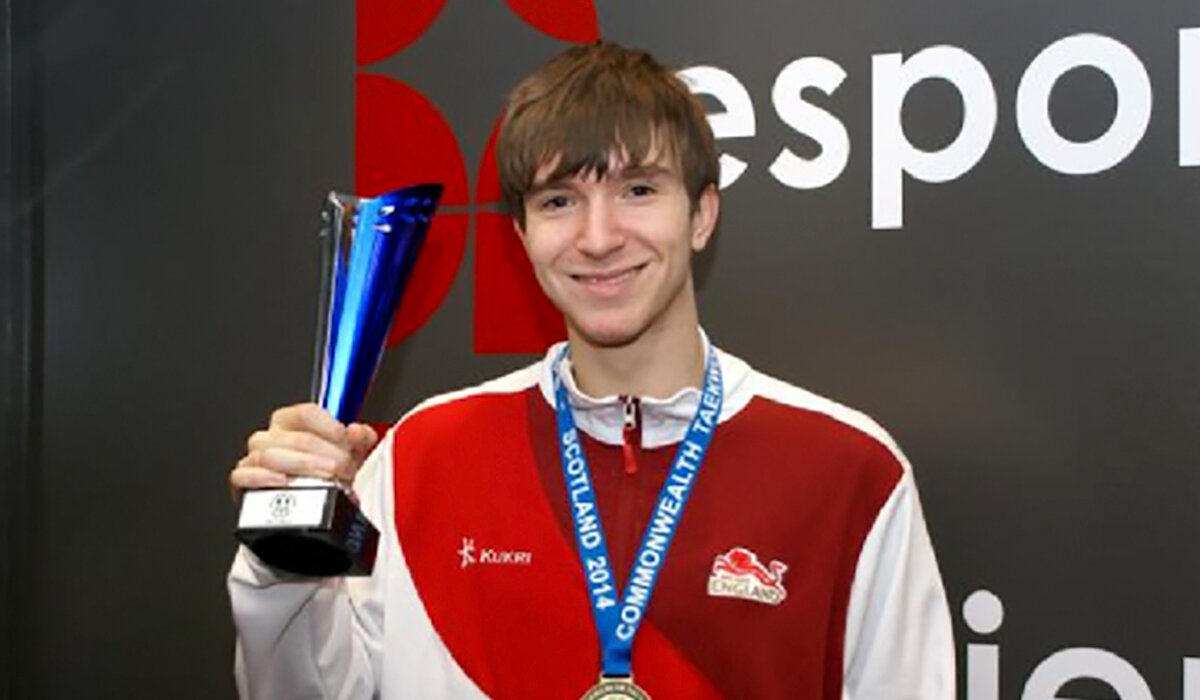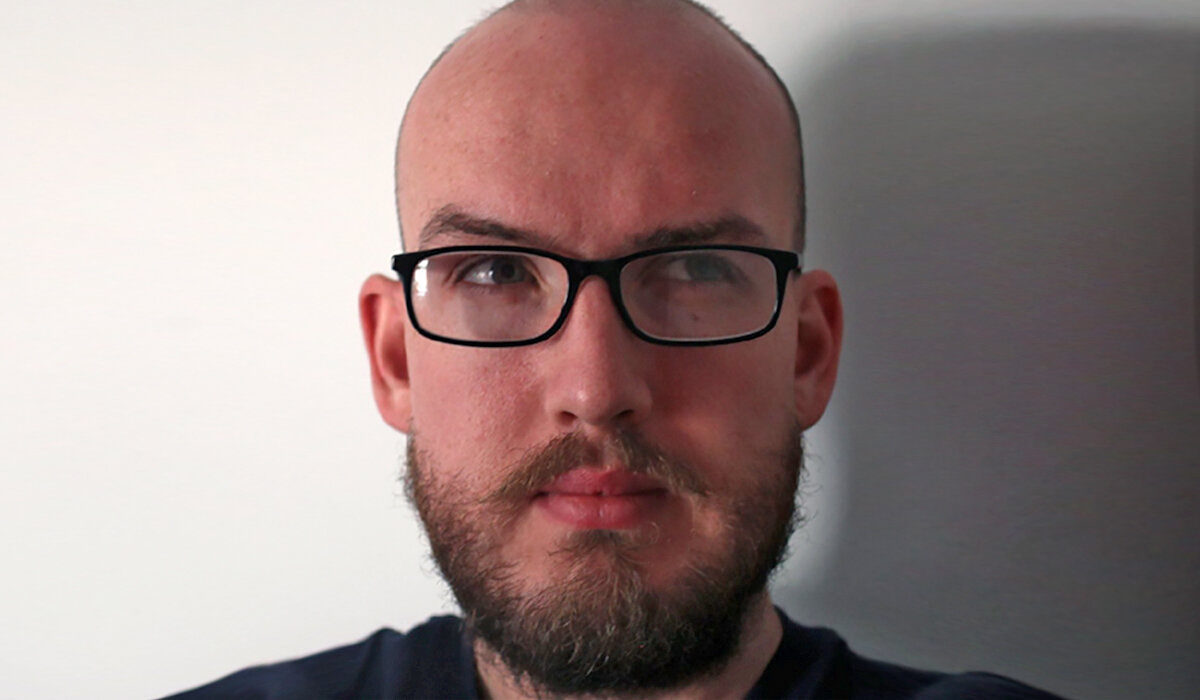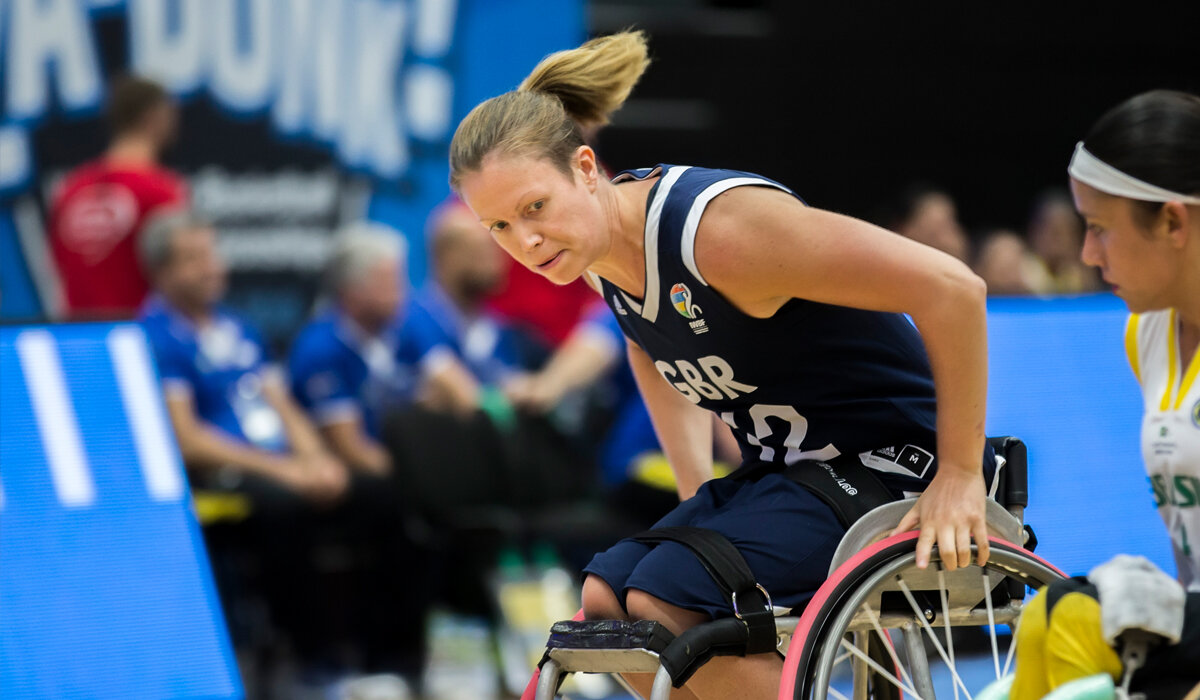
"I've always been really focused when it comes to something I'm interested in. I think that focus really helped me with Taekwondo."
Thomas Henley
- on being an autistic Taekwondo champion
Stories from the Spectrum: Thomas Henley
We caught up with the talented Thomas Henley, autistic YouTuber, creator of the Thoughty Auti podcast, and a Taekwondo champion. Thomas first fought his way to an impressive martial arts victory at the Commonwealth Championships in 2014, where he took home the gold medal and the coveted ‘Best Male Fighter’ trophy.
Thomas has recently created a documentary film, Aspergers in Society, as part of his final year university project. The film highlights life on the spectrum and explores the connection between autism and mental health.
We talked to Thomas about his documentary, how his martial arts career kick-started, and why raising awareness of autism and mental health is so important for society.
When were you diagnosed as autistic?
I was diagnosed when I was ten. I was quite bubbly as a little kid. I was always going up to people and talking to them. Around that age I also started to notice I was a bit different from other people, which was a little bit difficult to deal with.
I remember my mum took me to an autism assessment. Afterwards, she sat me down in the McDonald’s nearby, got me some chicken nuggets and chips, and explained to me that I was autistic. I remember crying tears of joy, because it was obviously such a big deal for me. I finally understood why I felt so different to other people.
What is being autistic like for you?
I guess I’m a little bit different. I’ve got a mixed bag of personality traits.
I spent about three to four years of my life reading about sociology and psychology to try and understand autism and to build up my social skills. Right now, I think my social skills are quite good. However, I’m very hypersensitive to basically everything. I find bright lights and loud noises very anxiety-provoking.
Non-autistic people are often quite surprised to find out I have quite frequent spikes of anxiety, panic attacks and meltdowns. I usually get them around night-time. The anxiety sort of builds up throughout the day, and then becomes difficult to deal with at night.
I was diagnosed with anxiety and depression when I was 14. Both are quite severe and something I have to deal with daily, although it does fluctuate. I’m on quite a few medications to try and deal with it. One of the ways I cope is having a goal in mind that I want to achieve or something I can focus on – like my Taekwondo for instance.
When did you first start doing Taekwondo and how did you get into it?
When I was a teenager my depression was a lot more difficult to deal with. I wasn’t on the correct medication and I was down pretty much all the time. I was quite vulnerable.
At the time I was watching a lot of Japanese anime and decided I wanted to be a martial artist. I tried out several different martial arts. Some of them were a bit ‘tame’ for me, and some were a bit too hands on. I didn’t like touching people!
Taekwondo primarily involves kicking, which suited me as I didn’t really have to touch people! I went to a club in Harrogate (where I’m from) for a couple of years and then decided to move on to a sports class at Horizon Taekwondo. I ended up travelling for about two hours after school each day to various Taekwondo classes around the country as I started to improve. I got into the sport quite late in comparison to other people, which was difficult. Some of the other fighters I came up against in national competitions had been doing it since they were about six.
How does it feel to be a Taekwondo gold medalist and what is your proudest martial art moment?
I think the achievement I’m most proud of was winning the Commonwealth gold medal. I remember they merged the heavy-weight category with mine, so I ended up having to fight someone who was about ten kilograms heavier and a few inches taller than me! It was the end of the day, so there was a massive crowd gathered around the ring. There was so much noise and it was all very surreal. It was probably the closest match I’ve ever had. It was like a scene from a Rocky movie.
When I walked away with the gold medal I felt really elated. I was ready to go home after a long day, but then heard they were announcing awards for people. I was just about to leave when they called out my name. I darted back across the stadium and they gave me the award for ‘Best Male Fighter of the Commonwealth.’ It was a surreal experience.
At the time I didn’t think of myself as a very competent fighter and I never thought I’d get a medal, let alone a gold medal at the Commonwealth Championships. It was really weird. For a few days after I just thought, ‘did that happen?’.
Do you think being autistic has an impact on your approach to Taekwondo?
One of the staff at the University of Manchester (where I studied) does research around autism, eye-sight and coordination. She found it quite unusual that I had gotten so far in a sport that requires a lot of coordination.
The funny thing is that I’m actually a really clumsy person! I always injure myself. I’ll be that person who walks into a lamp-post or goes round a corner and shoulder-barges a wall! I’m not very coordinated at all.
However, I’ve always been really focused when it comes to something I’m interested in, whether that’s writing, making videos or studying for uni. I think that focus really helped me with Taekwondo. I went to all the classes. I wasn’t the sort of person who’d slack off or go off to the side and socialise in class. Even on my off days I would be doing exercises in my room or backyard.
"I’ve always been really focused when it comes to something I’m interested in. I think that focus really helped me with Taekwondo."
I used to have a lot of panic attacks before training and competitions. That was difficult to get over at first. Taekwondo gave me an outlet for my negative feelings. I saw the training session as me battling against myself and overwhelming mental anguish my conditions lent to me.
Tell us about your upcoming documentary...
It's called Aspergers in Society and it’s all about the link between autism and mental health. In my final year of my Biomedical Sciences degree, I made the documentary as part of a Science and Communication project. I wanted to throw myself into something I was passionate about and this seemed like another crazy opportunity to push my limits.
The documentary weighs up the biological and social aspects of being autistic. It does seem that there are some biological factors that could make autistic people more prone to things like anxiety and OCD.
I organised the interviews in the documentary, with help from my supervisor, as well as local autism associations. I did the interviews myself and presented a lot of the background information on autism, did voice-overs and created my own background track. I also edited the film, which took me a long time! When I started off, I had absolutely no experience in film-making. I learned video and audio editing through YouTube tutorials, but it was definitely a big feat for me to overcome.
Why do you think raising awareness of autism and mental health is so important?
I’ve always been aware of the connection between autism and mental health. Through talking to people on radio shows and on my YouTube channel, I realised it was even more common than I realised. The statistics of autistic people who have experienced things like bullying, depression and suicidal ideation were alarming, and this really struck a chord with me.
We don’t really see many stories in the media or representations of autistic people with co-occurring mental health conditions. I think there is definitely more we can do to raise awareness of autism and mental health – through social policies and change, in workplaces and in education etc.
If you could destroy one myth about autism, what would it be?
There’s a misconception that autistic people can’t be social. Of course, it’s going to be more difficult to socialise if you have a different brain structure to those around you, but that doesn’t mean you can’t be social. Most of my friends would describe me as an introverted socialite, I don’t interact with people on a regular basis, but when I do I’m very competent at leading conversations.
How are you coping with the lockdown? Any tips?
The first couple of weeks were fine for me. I was quite comfortable with people moving out the way and I didn’t feel the same pressure to see people all the time! I had an excuse to stay in and work on my YouTube channel, my podcast and my documentary. Having the documentary has been particularly helpful, as it’s given me something to focus on through this big transition.
The difficulty came when I finished my documentary, and I realised I didn’t have a routine anymore. I’m an SEN assistant teacher and I’ve been furloughed, so I’ve lost a large portion of my routine. I feel like most people could delete things and carry on with life, but the isolation wiped out all of that for me, so I had to build it up from scratch.
In terms of advice, the first thing I’d suggest is getting a balanced routine. Have a rough idea of when you’re getting up and going to sleep. Make sure you spend time outside in nature. Get some exercise. Do some stretching if you don’t feel like going outside. That can help with sensory feedback.
With everything that’s going on, it can be hard to stay in touch with others. I think it’s important to make that effort in some way or another – whether it’s online games with someone or chatting over a video/audio call. Having that interaction with people helps you feel a bit less alone.
You can keep up to date with Thomas’ latest projects on Facebook, Twitter and Instagram. The Thoughty Auti Podcast is available on Spotify, Apple Podcasts and Anchor.
Watch Aspergers in Society
Similar stories

"Tell whatever stories you feel passionate about, in any way you want."
John Clark
- on making films
Read more

"I am over-sensitive to sensory stimuli, which can be difficult in a lot of aspects of life, not just basketball."
Sarah Hope
- on her experience of sensory differences
Read more

"Swimming for the National Autistic Society was the incentive to get active."
Glen Brown
- on fundraising for our charity
Read more

The Spectrum magazine
Explore one of the UK's largest collections of autistic art, poetry, and prose. The Spectrum magazine is created by and for autistic people, and is available both online and in print.
Read the Spectrum





You are not alone
Join the community
Our online community is a place for autistic people and their families to meet like-minded people and share their experiences.
Join today